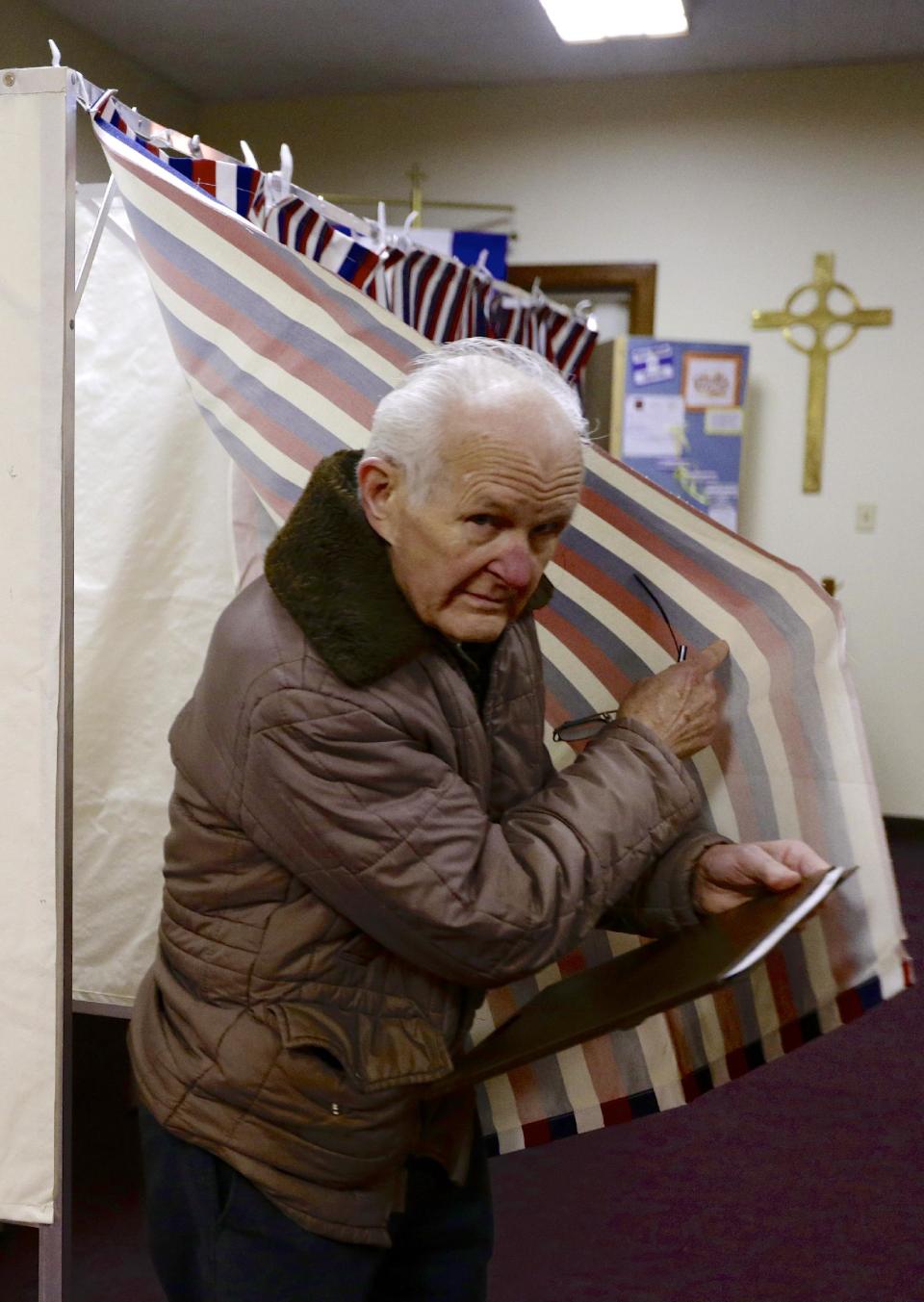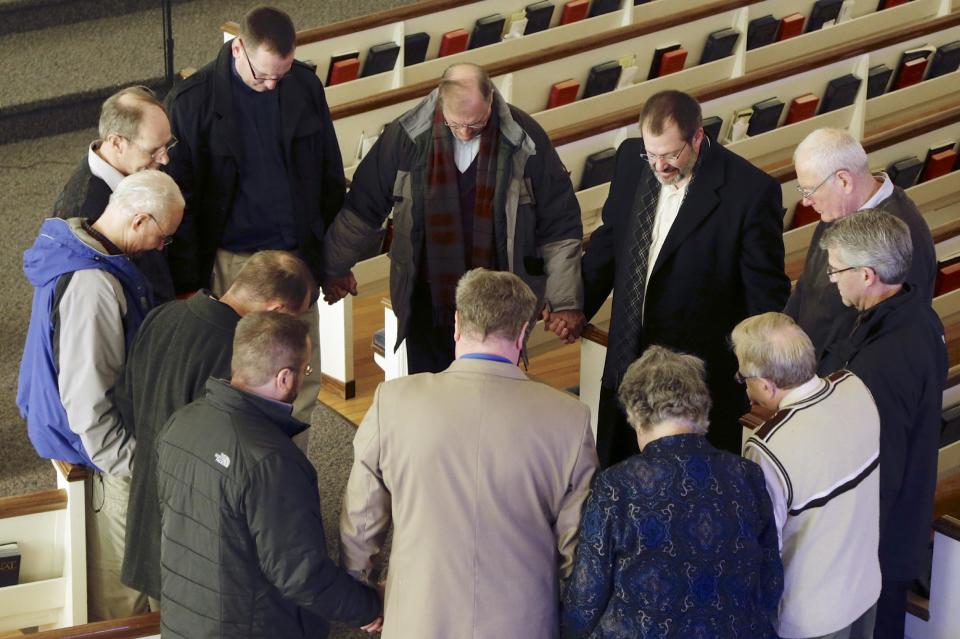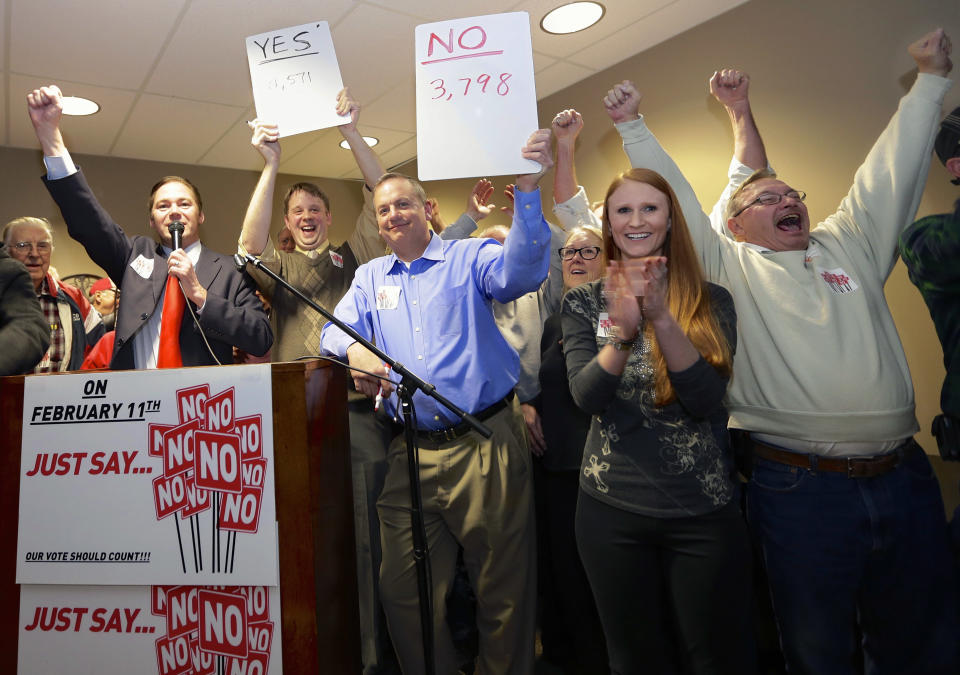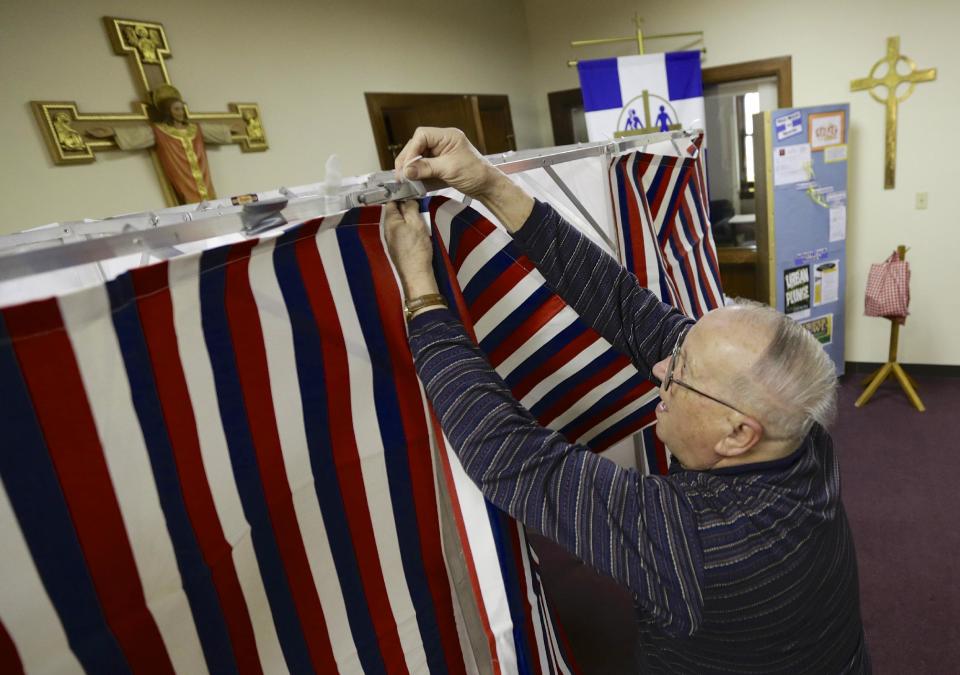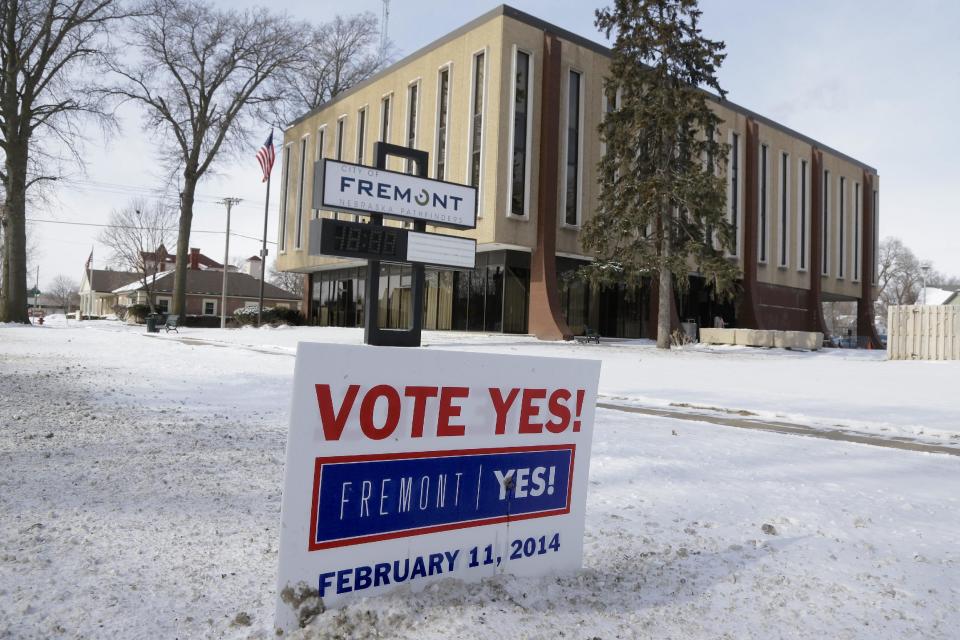Nebraska city to keep illegal immigration rules
FREMONT, Neb. (AP) — Residents of a small Nebraska city have reaffirmed their desire to take on illegal immigration.
Nearly 60 percent of Fremont voters decided Tuesday to keep an ordinance that requires all renters to swear they have legal permission to live in the U.S.
Voters first approved the rules by a smaller margin in 2010. Critics pushed for the new vote, saying the housing restrictions would be ineffective and might cost Fremont millions of dollars in legal fees and lost federal grants. They also said it was hurting the city's image.
But it wasn't enough to sway voters in the conservative agricultural hub near Omaha.
Fremont is one of only a handful of cities trying to restrict illegal immigration and, like those other cities, has found itself mired in court fights because of the regulations. City leaders put the ordinance on hold after the 2010 vote while courts reviewed it.
Now, some supporters are questioning whether city leaders will implement the ordinance, which was mostly upheld by the 8th U.S. Circuit Court of Appeals last year. The city of 26,000 residents was getting ready to enforce the housing restrictions for the first time last fall when elected officials decided to schedule another vote.
"The mayor and city council need to listen to the people," said John Wiegert, who helped organize the petition drive that put the ordinance on the 2010 ballot. "The people have spoken twice."
Fremont resident Matt Kwiatkowski, who voted to keep the housing restrictions, said he doesn't have any problems with immigrants who legally come to the U.S., but he doesn't think the country should go easy on people living here illegally. He hopes Fremont's ordinance will help increase pressure on the federal government to do something about illegal immigration.
"I think more towns need to do this given that the federal government isn't doing its job," Kwiatkowski said.
Civil rights groups, which could still derail the ordinance by taking their challenge to the U.S. Supreme Court, said they would closely monitor Fremont's implementation of the rules.
"We are saddened by the result of today's vote, and will stand with those residents of Fremont who will be harmed by the unfortunate decision to allow a discriminatory housing ordinance to be implemented," Amy Miller, legal director of the American Civil Liberties Union of Nebraska, said Tuesday night.
The housing rules require anyone who rents a home or apartment to apply for a $5 permit and attest to their legal status, but there is no mandate to show proof. New permits are needed for every move, and landlords are required to make sure their tenants have permits or face a $100 fine.
It's not clear how many people live in Fremont illegally. Census figures show 1,150 noncitizens live in the town, including immigrants who don't have permission to be in the U.S. and lawful permanent residents, foreign students and refugees who are legally in the country.
Supporters insist the measure does not target Hispanics, but the topic can make for awkward conversation given Fremont's growing immigrant population. The number of Hispanics jumped from 165 in 1990 to 1,085 in 2000 and 3,149 in 2010, mostly because of jobs at the nearby Hormel and Fremont Beef plants.
When Fremont first adopted the ordinance, the city was thrust into the national spotlight partly because it acted shortly after Arizona's strict immigration law made headlines. A few other cities, such as Valley Park in Missouri, have modified or abandoned ordinances in the face of court challenges and dissent.
In Congress, similar issues have halted immigration reform. A Senate-passed bill appears to be dead in the House, where conservatives cite a changing series of reasons for not wanting to act. House Speaker John Boehner has all but ruled out passage of immigration legislation before the fall elections.
A provision in the ordinance that wasn't up for consideration in Tuesday's vote requires employers to use a federal online system to check whether prospective employees are permitted to work in the U.S. That part of the law has been in place since 2012, and larger employers were already using it.
___
Online:
Fremont Yes: http://www.fremontyes.org
Our Vote Should Count: http://www.ourvoteshouldcount.com
City's ordinance FAQ: http://www.fremontne.gov/faq.aspx?TID=25

